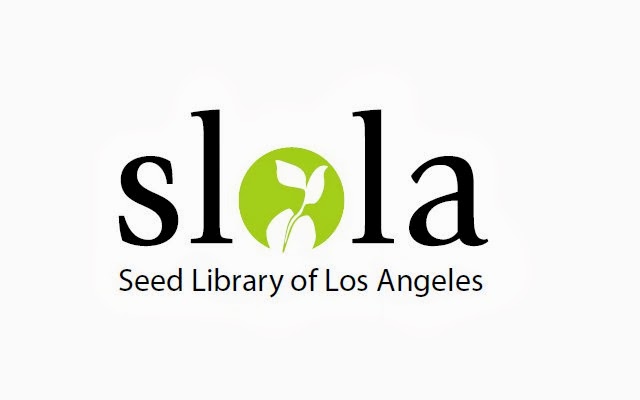Luther Burbank is one of my heroes. I wrote a glowing review of his recent biography, The Garden of Invention by Jane Smith, a book I devoured in a weekend and when I toured his home in Santa Rosa, I felt like I had come to holy ground when I got to walk into his greenhouse. Luther Burbank gave us the Burbank Potato, Santa Rosa Plums, Shasta Daisies and hundreds of other plants. Luther Burbank ranks up there with Henry Ford and Thomas Edison (both of whom admired him as well). He was a genius at plant breeding and we all have eaten better because of him.
One of the annual vegetables he bred is the Burbank Red Slicing Tomato introducing it in 1915. Burbank reported his family put up shelves' full of tomato sauce every year and this was the only tomato they used. In seed catalog after seed catalog, the tomato is noted for excellent production of 'medium sized' firm fruits. A recent meeting with Terry Allan of Seeds of Change, inspired a community project for the Seed Library of Los Angeles.
Terry told me that the Burbank Slicer had been falling out of favor over the years because the fruits were getting consistently smaller, less on the 'medium' size and more on the 'cherry' size. I don't know if this is the reason the Slicer isn't in this year's selection from Seeds of Change, but it isn't. Intuitively, it became apparent that SLOLA could be instrumental in saving Luther's prized tomato variety.
What a great project for a seed library! We are, after all, learning how to grow plants out to seed and how to save that seed. Tomatoes are self fertile which means even beginners can help. It's a perfect project for a seed library and its members. Terry gave me a couple packets of seeds which were divided into envelopes of six seeds each and distributed to the SLOLA membership in last meeting. I had enough left over for my UCLA Extension class to also plant six seeds each.
The instructions for this project are to plant the seeds and grow the plants; save seed from only the biggest fruits - but try to select a fruit from the earliest fruits, one in the middle and one towards the end, so we don't inadvertently select for an early or late tomato. The only selectivity we want is larger fruit.
I don't know how many years we will need to select for larger tomatoes to make an impression on the genome, but we can do it. I am excited about this project and I hope we can find others where our seed saving expertise can be tweaked even more and we can make an impression on the seeds in the market today.
It's a great time to be on this seed saving front! And we are on the lookout for more projects like this for our membership. We can make a difference in what people have to eat too!
david


So excited to be part of this project!! Burbank is also a hero of mine. I collected a few stray shasta daisy seeds from Burbank's garden when I visited this past November, which I will definitely be sharing with the seed library. :)
ReplyDeleteWhat a great project! I'm an admirer of Burbank as well.
ReplyDeleteMany of us have noticed low germination with the seeds handed out in our meeting. If you have low germination, don't fret that you did something wrong - the seeds might have been old or poorly stored before we got them. DO take what you have and grow it out and save the seeds - we want to do right by this variety and Luther!
ReplyDeletedavid